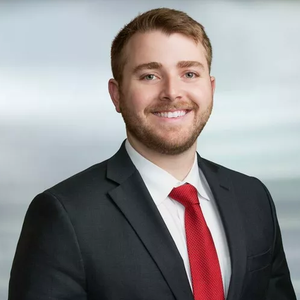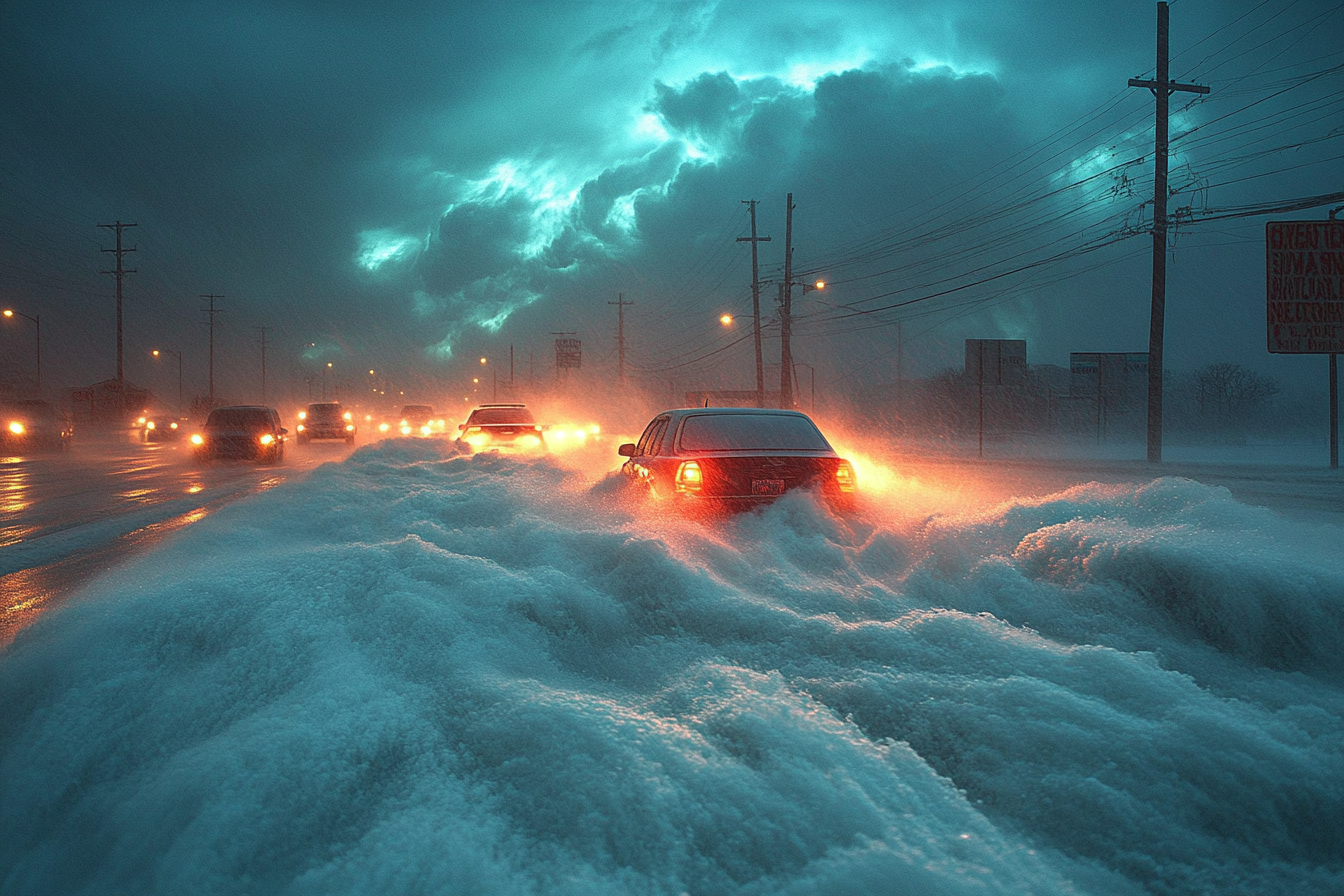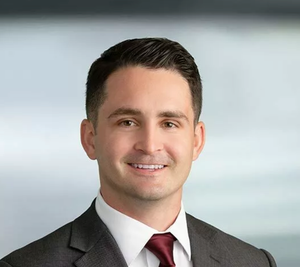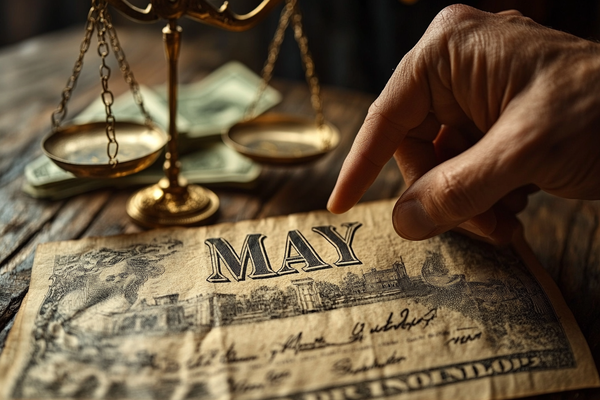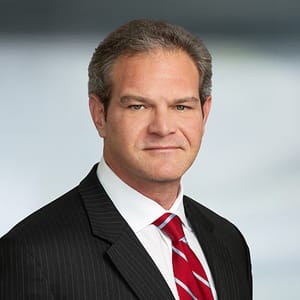In case you somehow forgot, the 2021 Valentines Day storm coined “Snovid,” “Snowmageddon,” or officially labeled Winter Storm Uri, blanketed Texas in snow and ice, even bringing snowfall to Galveston Beach. As temperatures dropped, oil field equipment froze, wells were shut in, and the natural gas needed to generate electricity crashed as the demand for power sky rocketed. According to the Texas Supreme Court, “Texas was fewer than five minutes away from a total grid collapse that would have plunged the state into darkness for weeks, maybe months.” PUC of Tex. v. Luminant Energy Co. LLC, 691 S.W.3d 448, 455 (Tex. 2024).
At first pass, this event seems like it would constitute a force majeure event, and few natural gas purchasers and suppliers have argued otherwise. But the question in Freeport LNG Marketing, was whether a force majeure event actually caused Kinder Morgan’s failure to purchase gas. The Fourteenth Court of Appeals reversed and remanded the trial court’s award of summary judgment to Kinder Morgan, holding it failed to meet its burden that its failure to purchase gas was caused by force majeure.
The $100 Million Question: What Really Happened During Uri?
Kinder Morgan is a natural gas pipeline that purchases, sells, and transports gas. In 2018, Kinder Morgan and Freeport entered into the industry standard “NAESB” Base Contract which contains the stock provisions for the purchase and sale of natural gas. NAESB is short for North American Energy Standards Board, an industry forum who promulgated the form contract to expedite negotiations and to provide industry participants a clear understanding of the obligations of both parties. These base contracts include “check-the-box” general terms that parties agree to such as cover standards, payment methods, and force majeure provisions. Separate Transaction Confirmations are then entered into between the buyers and sellers that set the price, delivery location, and quantity of gas to be sold.
Of course, like any contract, the parties are free to modify the base terms. This is normally completed through an addendum or “special provisions.” In the Freeport LNG Marketing case, the parties, through special provisions, modified portions of the standardized force majeure language, clarifying that events qualifying as force majeure in the contract only excuse the party from performance, “if and to the extent that such cause, event or circumstance directly prevents or restricts delivery by Seller or receipt by Buyer of Gas at the applicable Delivery Point.”
When Standard Contracts Meet Extraordinary Circumstances
The Transaction Confirmation at issue here was unique in that Kinder Morgan was required to sell gas to Freeport, which Freeport could, at its option, then sell back to Kinder Morgan. When Winter Storm Uri hit, Freeport informed Kinder Morgan of its election to sell back its daily quantity of gas for February 10 through February 22. Kinder Morgan accepted the sellback on some days but rejected it on others because it was curtailing sales itself. Kinder Morgan ultimately disputed eighty percent of the invoiced amount (roughly $100 million), claiming force majeure. For reference, gas prices during the storm rose well over 100 times daily prices immediately before and after the winter storm.
Kinder Morgan argued at the trial court that the force majeure event fully excused its repurchase of gas from Freeport. Kinder Morgan further contended that the sellback provision was subject to the force majeure clause in the contract; thus, if Kinder Morgan no longer had an obligation to sell gas to Freeport due to force majeure, then Freeport no longer had a right to exercise the sellback provision.
The relevant clauses in the NAESB, as amended by the special provisions read:
11.1 … [N]either party shall be liable to the other for failure to perform a Firm obligation, to the extent such failure was caused by force majeure.
11.2 Force Majeure shall include, but not be limited to the following … (ii) weather related events affecting an entire region, such as low temperatures which cause freezing or failure of wells or lines of pipe; (iii) interruption and/or curtailment of Firm transportation … (v) governmental actions such as necessity for compliance with any court order, law, statute, ordinance, regulation, or policy having the effect of the law promulgated by a governmental authority having jurisdiction … provided, however, that any of the previously described causes, events or circumstances shall only constitute Force Majeure if and to the extent that such cause, event or circumstance directly prevents or restricts delivery by Seller or receipt by Buyer of Gas at the applicable Delivery Point. …
11.3 Without limiting the foregoing Section 11.2, it is recognized that Seller may be subject to governmentally sanctioned or mandated orders or plans for Gas allocation and/or curtailment in the event of a Gas Shortage. It is stipulated that any reduction or suspension of Gas deliveries by the Seller in compliance with such an order or plan shall be deemed to be fully excused … and shall not cause the incurrence of any liability of any kind or type by Seller to Buyer.
Undoubtedly, this was a weather-related event affecting an entire region. Most of the United States experienced sub-freezing temperatures for more than 7 days.
These cold temperatures impacted wells and lines of pipe like never seen before. FEMA reported that the United States experienced the largest monthly gas decline on record, falling from 90.8 billion cubic feet of production on February 4, 2021 (“Bcf”) to 65.4 BCF on February 17, 2021. In Texas, the month-over-month gas production was down 70.1%. Altogether, this created an energy crisis that the government attempted to mitigate through a series of emergency declarations and orders. The Railroad Commission issued an order on February 12 that required deliveries of natural gas to be prioritized for electrical generation facilities.
The existence of all these conditions was ultimately why the trial court found that Kinder Morgan satisfied its burden, as a matter of law, that its refusal to purchase gas was excused by force majeure. Freeport, however, argued there were many fact issues, all of which can be boiled down to: was the existence of the government order, statewide drop in supply, and freezing temperatures the actual reason that Kinder Morgan failed to satisfy its obligations? In other words, Freeport attacked the “causation” element of the force majeure defense, arguing that Kinder Morgan failed to address causation whatsoever in its motion.
The Causation Challenge That Derailed a "Slam Dunk" Defense
On appeal Kinder Morgan homed in on its compliance with Railroad Commission orders that required gas to be directed to certain tiered recipients, to the extent possible and necessary. Freeport argued, and the court of appeals agreed, that Kinder Morgan failed to provide any evidence that its reduction of supply of gas to Freeport was necessary to comply with the order. Moreover, the Court held that Kinder Morgan failed to demonstrate that any curtailment was necessary in the first instance. Kinder Morgan simply asserted – which the Court found conclusory – that it needed to curtail its deliveries to Freeport to satisfy gas deliveries to higher tiered customers. Kinder Morgan failed to provide any data to support this argument.
Finally, Kinder Morgan argued that the mere existence of the order justifies any reduction in supply to Freeport, pursuant to Section 11.3 of the parties’ agreement. But the court rejected this argument. The court reasoned that, while there may have been an event or condition that qualified as a force majeure under the NAESB contract, Kinder Morgan failed to conclusively prove that the event or condition was the actual cause of its failure purchase and sell gas. Therefore, the court reversed and remanded, holding summary judgment was improper.
This case stands for the proposition that parties must prove a casual nexus between the force majeure event and the failure to perform. Freeport creatively attacked causation, questioning whether the order required 100% curtailment to Freeport, whether Kinder Morgan’s actual gas supply necessitated curtailment, and if so, what percentage of curtailment was necessary. These issues are difficult to prove as a matter of law at the summary judgment stage, but the trial court’s ruling would have had a stronger chance at being upheld had Kinder Morgan provided the court with its Electronic Bulletin Board data and volume accounting data.
The Evidence Dilemma: Why Data Can Be Your Best Friend or Worst Enemy
This information would have provided the court with a better picture of the volume of gas at Kinder Morgan’s disposal, who it allocated that gas to, and the Railroad Commission category that the counterparty fell within. But producing this data has its drawbacks. This data opens the door to other potential issues savvy lawyers will identify e.g., did Kinder Morgan redirect gas supply to higher priced markets, did Kinder Morgan prioritize parties with gas daily pricing or first of month pricing, did Kinder Morgan prioritize its baseload customers versus spot deals, and how much gas did Kinder Morgan sell under no-notice contracts?
A recent jury verdict underscores just how fact-intensive and case-specific force majeure defenses can be. While Kinder Morgan’s defense failed at the summary judgment stage due to a lack of evidence on actual cause, Marathon Oil Company prevailed on the same issue at trial by persuading a jury that Winter Storm Uri “prevented Marathon from delivering [gas] or made Marathon’s delivery impracticable.” See Verdict, Marathon Oil Company v. Koch Energy Services, LLC, No. 4:21-CV-01262 (S.D. Tex. May 5, 2025), ECF No. 301.
Beyond Uri: What This Means for Your Next Force Majeure Strategy
The difference between these outcomes illustrates that parties must tailor their evidence to meet the evidentiary burdens imposed by any NAESB special provisions. Questions remain whether a party must prove full and complete causation – and how damages should be calculated when a party’s non-performance was only partially caused by a force majeure event. For example, what if a party reasonably, but mistakenly, prioritized a counterparty that it thought was serving human needs customers? Nitpicking causation, and effectively how a party complies with a government order during a historic gas supply shortage, seems inconsistent with the certainty the NAESB forum envisioned, but adding special provisions that change the stock language has this impact. The lesson is clear: parties need to consider the evidentiary burden their special provisions will create at trial. Proving absolute causation may not be easy.

